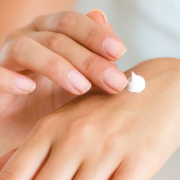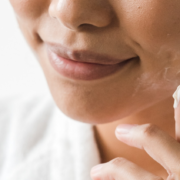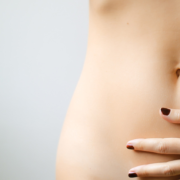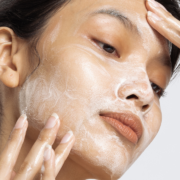Good health and glowing skin both begin in the gut

By Chiza Westcarr
There’s been a lot of focus on gut health and its influence on our overall health in recent times. I am not convinced, however, that we realise the extent to which the health of the gut governs our mental health, weight, bowel regularity, skin health, autoimmune health and so much more. Chronic illnesses such as inflammatory bowel disorders, metabolic diseases and mental illness all have a very strong link to gut health.
The gut is home to an ecosystem of trillions of microbes including yeast, fungi, bacteria and viruses. These microscopic organisms have their own unique gene pool that influence their behaviour and subsequently ours too. We refer to the gut microbes and their genes as the gut microbiome.
Gut microbes are able to not only communicate with each other but also with the brain via neurotransmitters or special signals that they release, such as serotonin, and dopamine, that then travel up a nerve, the vagus nerve, from the gut to the brain stem. 95% of serotonin, our happy hormone, is produced by these gut microbes, influencing our mood and mental health. We often refer to the vagus nerve as a bi-directional superhighway because apart from receiving these signals from gut microbes, in turn the brain is able to transmit messages back to the gut based on the communication it has received.
In Australia, we are the second highest users of anti-depressants in the world. Our diet directly influences both the microbial diversity as well as microbe numbers in the gut. Good microbes are heavily dependent on a fibre-rich diet, acquired from fibrous vegetables, which they break down and ferment to produce short chain fatty acids, which provides energy and nourishment for themselves and for the cells that line the gut. Short chain fatty acids also have an inflammatory effect on the gut.
Apart from these good microbes that reside in the gut, it is also home to opportunistic microbes that are potentially pathogenic, or disease causing. If these pathogenic microbes manage to increase in large numbers, and get out of control, they are associated with gut dysbiosis also termed ‘leaky gut’, with symptoms ranging from stomach cramps, flatulence, abdominal distension, alternating between diarrhoea and constipation, weight gain and weight loss, and so much more.
Unlike the fibre-rich diet good microbes require, the not-so-good pathogenic microbes thrive on a refined, highly processed, sugar-based diet that contains very little, to no fibre. Pathogenic gut microbes also communicate with the brain, releasing their own signals that also travel up the vagus nerve. They are associated with low serotonin levels, constipation, and changes in mood and mental health.
Alcohol consumption, long-term medication use, and chronic stress also impact gut microbe health. Inflammatory skin conditions such as Rosacea, psoriasis and acne all point to gut dysbiosis or ‘leaky gut’.
When the diet is right, the gut microbial mix is right, with the good gut bugs being in the majority, keeping us disease free and healthy on the inside and vibrant and radiant on the outside.
Taking probiotics increases the population and diversity of good microbes.
Eating lots of fibrous vegetables provide the important food for the good microbes.
Reducing refined carbohydrates, sugar, alcohol, managing stress levels and getting adequate sleep all serve to enhance gut function.
What does your skin say about you?
**This post originally featured on Chiza’s Blog over at glowskinandnutrition.com
Chiza is working alongside our Therapists to create a holistic approach to skin health through her nutritional meal plans, targeted directly to your concerns. Chiza has multiple impressive qualifications under her belt, including a Bachelor of Health Science specialising in Clinical Dermal Therapies, a Masters Degree in Human Nutrition and an Advanced Diploma in Nutritional Medicine. Chiza is also a qualified Health Coach.








